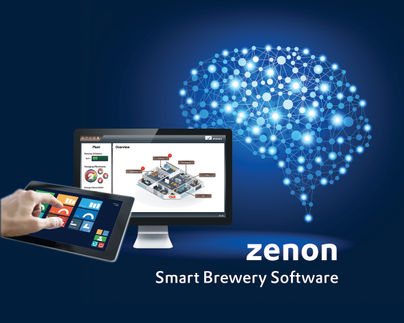Industrial Cleaning 4.0 – Innovative Solutions for the Beverage Industry
Innovative solutions for efficient and adaptive cleaning of machinery in the Beverage Industry will be presented by the Fraunhofer IVV Dresden at the drinktec fair in Munich from 11-15 September 2017 on the stand of the VDMA (Hall B3, Stand 113). The new mobile cleaning robot is versatile in its use and realizes time and cost savings for cleaning processing machinery. Easier and more thorough cleaning of tanks is also realized using a novel jet cleaner. In combination with simulation tools, they also guarantee effective cleaning in a production environment without the need for time-consuming cleaning tests on machine prototypes.
Industrial Cleaning 4.0 – the new mobile cleaning device
A new mobile device developed by the Fraunhofer IVV Dresden facilitates the cleaning of machinery. The mobile cleaning device (MCD) is now also available as a self-driven system for fully automated cleaning. In contrast to standard cleaning systems, the MCD is not installed in a dedicated way in a machine, rather it can be used in a versatile way to clean several machines. Movement between machine modules can take place by an own drive unit or by utilizing existing transport systems. The MCD has an optical sensor system for dirt detection and adaptive cleaning. It senses which regions need to be cleaned and indicates when the cleaning has been successfully completed. Data are continuously logged. The virtual twin of the MCD comprises an adaptive model of the cleaning process. Combining this with cognitive control concepts and a sensor system for dirt detection allows for the first time adaptive cleaning in response to the actual hygienic state of the machine. Separately driven nozzles are available for foam and spray cleaning. Targeted cleaning of parts of machines is as possible as the cleaning of whole machines.
Industrial Cleaning 4.0 – the path to intelligent tank cleaning
Intelligent tank cleaning at the Fraunhofer IVV Dresden starts long before the use of the actual cleaning systems. Effective cleaning and quality assurance begin with the design of the tanks themselves. This is being achieved by novel jet cleaners, simulation tools, and their coupling with intelligent sensor systems. These innovative jet cleaners will be presented for the first time at the drinktec fair. They allow adaptive tank cleaning and have considerable potential for improving resource efficiency.
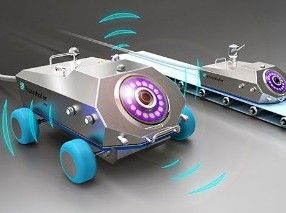
Cleaning robots with optical sensor systems for dirt recognition
Foto Fraunhofer IVV Dresden
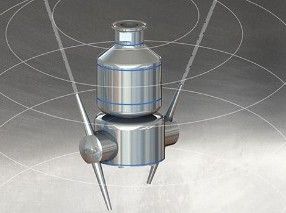
Double helix jet cleaner – the novel cleaner developed by the Fraunhofer IVV Dresden
Foto Fraunhofer IVV Dresden
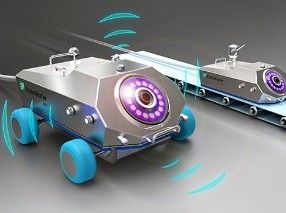
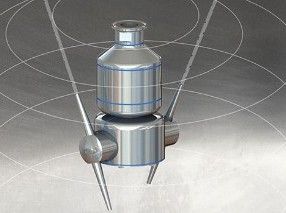
Virtual simulation for optimization
In order to simulate complex jet cleaning systems, the Fraunhofer IVV Dresden will be presenting software that is currently being developed in a project funded by the Federal Ministry of Education and Research (BMBF). This allows cleaning systems from designers to be simulated in a CAD system in real time, so that in the future enabling cleaning systems can be tested and optimized in advance of their use. This then does away with the need for complex iterative adaptations to prototype systems or at the customer.
The step to intelligent cleaning is achieved by the new cleaning technology in combination with simulation-aided optimization. Uniform cleaning of surfaces is achieved and the total system automatically adapts to the situation in the tank. The vision of the still ongoing step to adaptive CIP tank cleaning will be presented at the drinktec fair. The self-learning and self-optimizing tank cleaning system comprises a motorized tank cleaner, dirt sensor system, and cognitive control unit and is currently being developed for industrial application in a project funded by the Federal Ministry for Economic Affairs and Energy (BMWi).
Fraunhofer IVV Dresden – partner for processing machinery and industrial cleaning technology
The objective of the R&D work is the constant optimization of machine processes. The priority is on product safety achieved by efficient processes. Key areas of work of the Fraunhofer IVV Dresden are the processing of flexible materials, industrial cleaning technology, analysis of machine processes, and the development of adaptive processes and their components.
